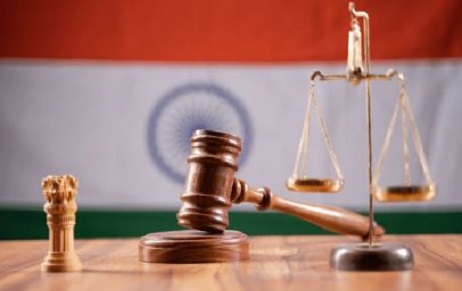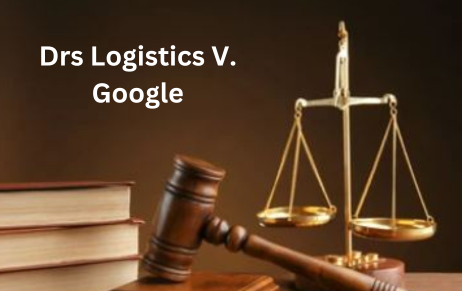ABSTRACT The project employs doctrinal research methods, i.e. secondary research which involves writing on basis…
Export Of Patented Product For Research Or Experimental Purposes– A Part Of Bolar Exemption
The High Court of Delhi had finally adjudged, the case of Bayer Corporation v. Union of India & Ors and Bayer Intellectual Property gmbh & Anr, v. Alembic Pharmaceutical Limited by the order dated 22.04.2019, on the scope of section107(A) of Indian Patent Act 1970 by reading the meaning of word ‘export’ into it, though it finds no express mention. The court thereby upheld the acts of respondents (Alembic/ Natco) legally and statutorily valid while dismissed to entertain the petitioner’s (Bayer) pleas in this regard.
To appreciate the issue in question, the facts of the case are to be related simultaneously with sections 48 and 107A of Indian Patent Act 1970.
Section 48. Rights of patentees.—Subject to the other provisions contained in this Act and the conditions specified in section 47, a patent granted under this Act shall confer upon the patentee— (a) where the subject matter of the patent is a product, the exclusive right to prevent third parties, who do not have his consent, from the act of making, using, offering for sale, selling or importing for those purposes that product in India; (b) where the subject matter of the patent is a process, the exclusive right to prevent third parties, who do not have his consent, from the act of using that process, and from the act of using, offering for sale, selling or importing for those purposes the product obtained directly by that process in India.
Section 107A. Certain acts not to be considered as infringement.—For the purposes of this Act,— (a) any act of making, constructing, using, selling or importing a patented invention solely for uses reasonably related to the development and submission of information required under any law for the time being in force, in India, or in a country other than India, that regulates the manufacture, construction, use, sale or import of any product; (b) importation of patented products by any person from a person who is duly authorised under the law to produce and sell or distribute the product, shall not be considered as infringement of patent rights.
THE ISSUE
Whether “export” of the patent product for research or experiment purpose is comprehended to be a part of bolar exemption [section 107A of Indian Patent Act, 1970]
FACTS OF THE CASE
The drug in issue is Sorafenib Tosylate (a Bayer’s product) was sold under the trade name “Nexavar”, was patented in India in 2008. NATCO applied to the controller general of patents for grant of Compulsory License under Section 84 (1) of the Patents Act, after an expiry of three years, as stipulated under the Act. Controller General of Patent issued the compulsory license to NATCO which was upheld by IPAB and the Supreme Court.
NATCO next applied for permission to export 1 Kg of Active Pharmaceutical Ingredient (hereafter “API”) Sorafenib to China to conduct clinical studies and trials for development of drug for regulatory purposes. It pleaded that export of the patented invention is squarely covered under section 107A and that its intentions were not for commercial purpose. Natco held that grant of Compulsory License does not take away the rights to export the patented invention for the purposes of section 107A.
Bayer alleged that 107A of Indian Patent Act does not allow exporting of drug even for the purposes laid down under 107A. And that absence of the word ‘export’ clearly indicates the purpose of the law – not to allow the export of the patented invention. And the words ‘in a country other than India’ should be interpreted only to allow export of the information generated by experiments in India. It held that the word “selling” should be interpreted to mean “selling in India and not outside the country”. Bayer alleged that if law intended to allow export, language would have expressly included that as it has included import. In summary, Bayer requested the court to interpret the word ‘sell’ to mean selling without exporting, i.e. selling in India. And such export of patented invention is violation of law.
On similar lines, Bayer filed an injunction against Alembic from making, selling, distributing, advertising, exporting, offering for sale and in any manner directly or indirectly dealing in Rivaroxaban and any product that infringes Bayer’s patented product. Alembic was manufacturing and exporting RIVAROXABAN to the European Union and had made multiple Drug Master File submissions to the USFDA in the USA for the drug RIVAROXABAN. Alembic alleged that exports being effected by Alembic were within the meaning of Section 107A only.
IN THE LIGHT OF PRESENT CASE
Learned Single Judge with regard to section 48 and section 107A in Bayer Vs. Natco, held that the words ‘sale/ selling’, as per their literal/textual meaning are without any geographical limitations and in Section 107A are not to be understood as within India only and if such sale / selling were to involve transfer of the patented invention / product to a country other than India though would also qualify as export / exporting but would not cease to be sale / selling. Observations of Ld. Single Judge are given below.
(1) The terms “constructing” in Section 107A and “offering for sale” in Section 48 were not important. It was then held that – It is thus the purpose for which the said acts are done which distinguishes, whether the acts constitute infringement of patent or not. If the said purpose is within the confines of Section 107A, the acts so done would not constitute infringement and vice versa. (para 9, page 6)
(2) That the words ‘sale/ selling’ thus, as per their literal/textual meaning are without any geographical limitations and in Section 107A are not to be understood as within India only and if such sale / selling were to involve transfer of the patented invention / product to a country other than India though would also qualify as export / exporting but would not cease to be sale / selling (para 35, page 9)
(3) It becomes immediately evident that ‘selling’ permitted by Section 107A is of a patented invention i.e. a product and not of ‘information’ (para 29, page 8)
(4) the words “law for the time being ‘in a country other than India’ is evidence of, obtaining regulatory approvals in countries other than India being contemplated by the legislature. Certain acts mentioned in Section 107A, required to be done for the purpose of obtaining such approval, would not be considered as infringement of patent rights. One of such acts is of selling of patented invention. The plain meaning of Section 107A is that selling of patented invention for obtaining regulatory approval in country other than India would entail transfer of patented invention i.e. product from India to that country. There is nothing in the language of Section 107A to suggest that only the information generated / collected in India could be transported out of India and not the patented invention. Therefore, the word ‘selling’ in Section 107A cannot be restricted to India only. (para 37, page 9)
The High Court bench comprising of two Learned Judges, after referring different dictionaries and relying on landmark judgements, finally observed that:
(1) there cannot be ironclad or bright line rule as to what acts are reasonably related to use or sale of product, with the object of using the developed information to satisfy the regulations, as stated below.
“That brings the question to what is use, sale, etc. “reasonably related” for the purpose of developing information, ultimately used for in compliance with regulatory processes and laws in or outside India? Ultimately, on this aspect, there cannot be an ironclad rule or bright line as to what acts are reasonably related to the use or sale of the product, with the object of using the developed information to satisfy the regulations.” (para 107, page 80,81)
(2) the sale, use and construction of patented products in terms of section 107A of the Act for purposes both within country and abroad is authorized and legally provided, as stated below.
“Sale, use, construction of patented products (by individuals and entities that do not hold patents) in terms of Section 107A of the Act for purposes both within the country and abroad is authorized and legal provided the seller ensures that the end use and purpose of sale/export is reasonably related to research and development of information in compliance with regulations or laws of India (or the importing country), for its submission in accordance with such laws. The impugned judgment of the learned single judge and the findings recorded on this aspect are accordingly affirmed.” (para 119, page 89)
(3) that section 107A is not to be treated as an exception to section 48 of Indian Patent Act as pleaded by Bayer. Discussion in parliamentary Joint Committee Report makes it a special provision dealing with right of patented invention for research purposes.
“In the light of the above discussion, the court is of the opinion that there is no question of treating Section 107A(a) as an exception to Section 48. Its history of interpretation by TRIPS, the discussion in the Parliamentary Joint Committee Report, all clearly point to its being a special provision that deals with the rights of the patented invention for research purposes.” (para 89, page 67)
(4) that the section 107A is in line with provisions of TRIPS agreement and other international guidelines too.
CONCLUSION
The sale of patented product for research or experimental purpose, within or outside India irrespective of quantity of product sold is held to be statutorily and constitutionally valid. No infringement lies with regard to Bayer’s product. In this regard, court states that,
“Once it is held that patented inventions can be sold for the purpose of carrying on research which fulfils the regulatory requirements of India, there cannot be any bar or an interpretation narrowing the scope of such sale. What is important is the purpose of the sale, i.e. objective of carrying on experiment, research and developing information (in the form of reports, outcomes etc.). If the purpose of the sale is to ultimately exploit the patented invention and either work upon it or “work around” or work it through research so as to be prepared to apply for the patent for approval to market it once the patent tenure ends, there can be no impairment of the patentee’s rights. The natural consequence of that sale cannot be curtailed by a contrived interpretation to say that it is only information that can be sold or exported, not the patented invention.” (para 91, page 68)
High Court gives utmost significance to A-47 and A-21 of the Indian constitution and upholds export as a valid part of Bolar Exemption, thereby not limiting the scope of export to information only. (para 117, pages 87,88)
Hence, allegations made by Bayer stand settled and the reliefs claimed by Bayer are dismissed. The matter is adjudged in the favour of Natco and Alembic.
Author: Rajeshri Thota,, Intern at Khurana & Khurana, Advocates and IP Attorneys. In case of any queries please contact/write back to us at Dhakshina Moorthy C.



